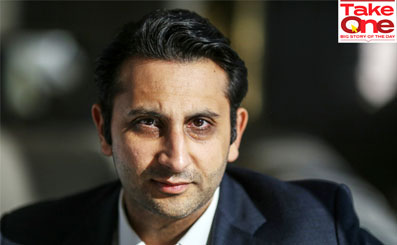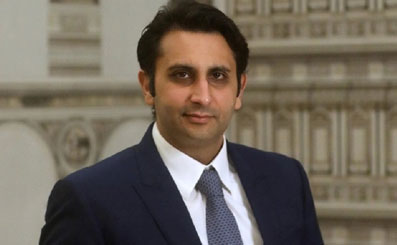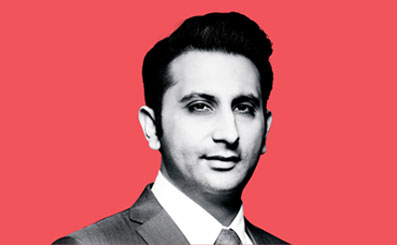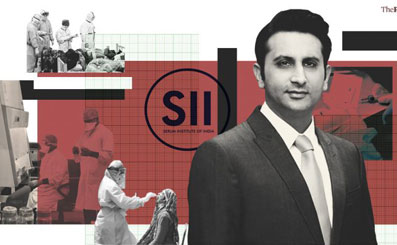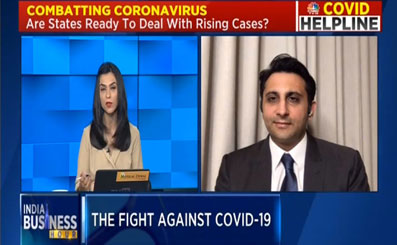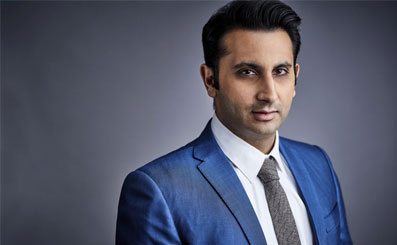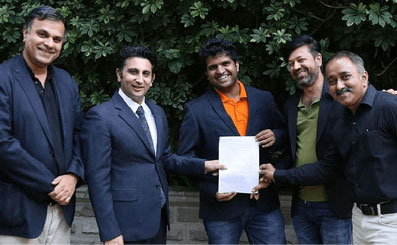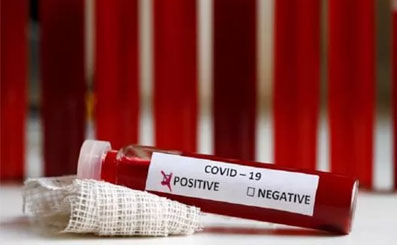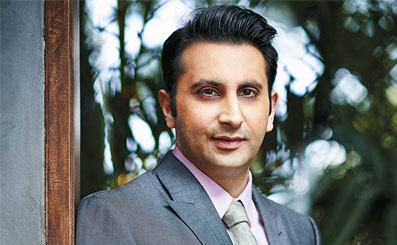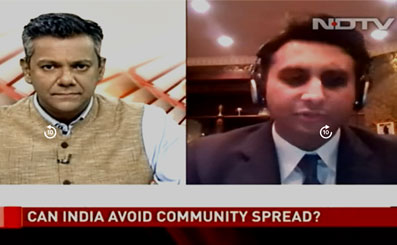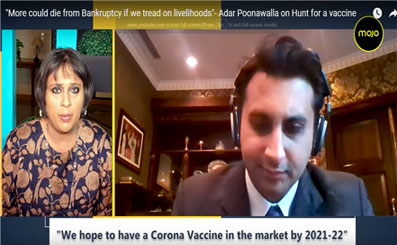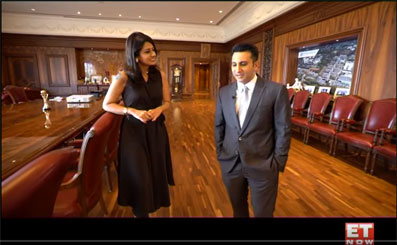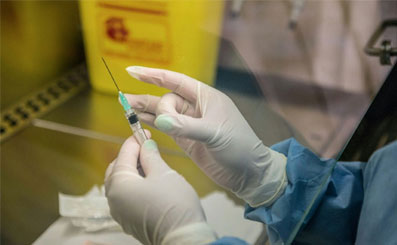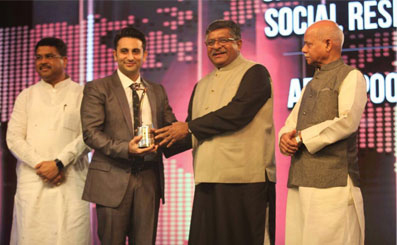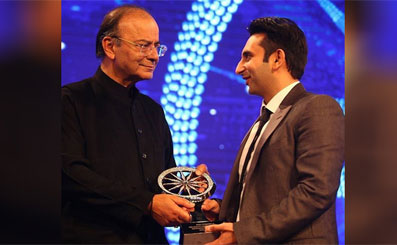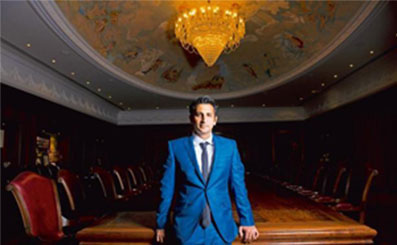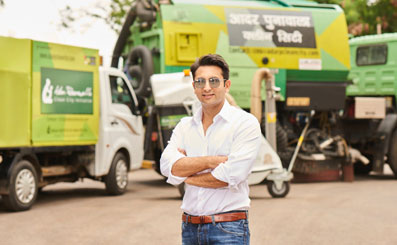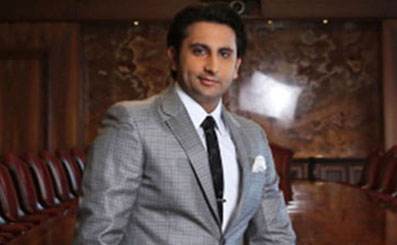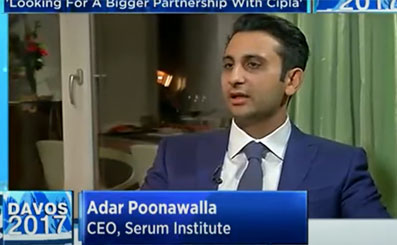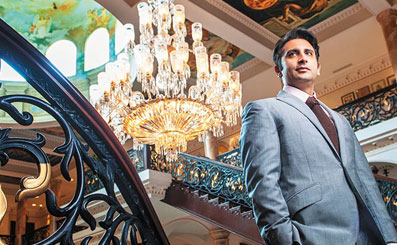Clearances main worry, says Serum head on dengue antibody
Serum Chief executive officer Adar Poonawalla says the company has entered into an exclusive agreement with US-based Visterra for developing a dengue antibody.
The dengue virus is spreading panic across the national capital. The total numbers of cases reported so far has crossed 3,700. Pune-based Serum Institute is gearing up to develop a biological drug to treat the dengue virus.
Poonawalla says the company will have right to produce and sell the antibodies in India and the neighbouring countries. But the issue that could play spoilsport is getting clearances for the same.
While it could take anything between 2-3 years to get the needed clearances, Poonawalla says he expects Prime Minister Narendra Modi to play a major role.
Below is the verbatim transcript of Adar Poonawalla's interview with CNBC-TV18's Shereen Bhan.
Q: The Dengue virus is spreading panic across the national capital. The total number of cases reported so far now at 3700. I understand that Serum is working with a US based R&D company Visterra to try and put out an antidote into the market. How much can you share with us in terms of where things currently stand, about your arrangement with Visterra?
A: We have entered into an exclusive agreement with Visterra which is a US R&D based company to exclusively produce and sell in India and some neighbouring countries a dengue antibody. We have paid them millions of dollars and we still have to pay them over some milestones. They have proven this to work and neutralise the virus and remove it from the blood stream of animals in an animal model. It is being tested in humans and the first human trials will start in Singapore where Visterra is conducting on their own. So, we should know in a month or two how well this is working.
We are quite confident here at Serum Institute and our scientists are very sure on replicating the clone and manufacturing it on a high scale and providing it within the next year or two to the Indian public at a very cost effective price somewhere between Rs 5000-10000 which is still much cheaper than being hospitalised and then having to treat yourself. So, we are at that stage at the moment and we are hoping that our government permissions and licenses are granted to us in a speedy manner because this is a public health issue. Dengue is very serious and we need to do something about it fast.
Q: Where do things currently stand in India? I understand that you have applied for approval to import the antibody.
A: Yes, the first step is to import the clone and then we have got to conduct a few tests on it and figure out how to make it on a large scale which shouldn't be too difficult given our experience in large scale vaccine manufacture. After that we will apply for the clinical trial permissions. This can typically take between one to two years with all the different committees that we have got to go through as a standard practice and this is where the honourable Prime Minister can play a serious role in fast tracking new drug development and giving a boost to India to Make in India for India and for exports. Certain drugs which are in the life saving category and are of this nature which impact public health certainly some kind of fast track procedure can be put in place to encourage this kind of entrepreneurship development and of course ultimately the benefit to the public who is suffering greatly with these diseases.
Q: Can you give us a broad timeline if the government were not to intervene or expedite the approval process, how much time would it take for the clearance to come in from start to end?
A: If there is no intervention in fast-tracking, this could take anywhere between two to three years, maybe even longer. We have had vaccine programmes that have taken up to four to five years, which I will not go into right now. But that is what can happen in the regular process because there are various different committees, they meet every three or four months, and we are talking about trying to get some kind of single window clearance where there is only one agency we go to, provide them with their necessary information and that should – like in other Western countries – grant you the permission within a year to conduct your trials because even after you conduct your Phase-I, Phase-II, then again you need to apply and submit the data which is fine. It is normal and it should be done. But we need to find a way of fast-tracking that and reducing the number of committees and having some kind of single window clearance put in place to make it happen within a year.
Q: I understand that you have paid Vistera USD five million already. Can you take us through the other milestone and royalty payments that you are expected to pay for this antibody?
A: Sure. We have got various percentages of royalties that we have paid depending on the region and territory that we take. That will happen much later, once we commercialise the product and it works well. We have got to pay another five or six million at the Phase-I stage and then at Phase-III, when it is completely licensed, we have got to probably dish out another USD five million. So, it is going to be about USD 15 million of risk that we are taking in these milestone payments. And then once we commercialise it, it will be a royalty percentage on the sales again depending on the region that we are talking about.
Anuj: So, do you get a sense that things can get ugly in Europe?
A: Actually in terms of the macro economic outlook Euro area is actually coming out of recession and is on a steady recovery path. If you look at the data coming out, if you look at the real side data coming out of Europe and that is actually much better than what people have anticipated looking at industrial production, coincident indicators such as Purchase Manager's Index (PMI). All of these are actually improving and showing that Euro are is on the way to recovery.
What we are however still seeing is concerns about inflation being very low with oil prices being very low and that is something that is going to keep the central bank - the ECB very accommodative. So, in general our expectation is that actually the Euro area is going to do much better this year because it is an oil importer, oil prices are down. It has made massive progress in terms of adjustments, improved ease of doing business, conditions etc, it is making progress in terms of reforms and also you are seeing some benefits coming through from stronger growth in the US.
Sonia: The point is taken that there has been stronger growth in the US but the comments that came in from the Fed has made everyone quite nervous where they alluded to a slowdown in emerging markets like China. How concerned would you be about a global growth slowdown that could be underway and how would it impact emerging market (EM) economies like India?
A: Actually EMs are otherwise sensor of the concern right now. So, any growth slowdown concerns are emanating from EMs. India does of course seem to be an outlier in this situation. It is one of the best performing EM countries, one of the major EM. But even there a growth of over seven percent is still considered very good, but in general when you look at the global growth outlook we think there is a slowdown in EMs which is going on, partly because of a lot of EMs are commodity producers in the Middle East, Latin America and Africa but a lot of the big EMs are commodity importers, you take India, China and some of these other major countries and that should be a boost to them over the next few quarters.
Global growth will be supported by the pickup in the US and other developed markets. So, overall our expectations for global growth still remains a very robust performance of around 3.1 percent this year, slightly better than last year. So, yes EMs are slowing but the vapour will buoy up the global growth story. The big concerns now really are to do with can China stabilise its growth story. We do expect that to happen, we do expect that China will be able to use monetary policy and fiscal policy more effectively to be able to stabilise growth but India of course as I said already will continue to be one of the outperformers given the fact that it is an oil importer, will benefit from lower oil prices. There is some positive momentum in terms of the sensitivity or the sentiments towards India as well. So, India still will be covered from any external risks.
Anuj: So, do you get a sense that things can get ugly in Europe?
A: Actually in terms of the macro economic outlook Euro area is actually coming out of recession and is on a steady recovery path. If you look at the data coming out, if you look at the real side data coming out of Europe and that is actually much better than what people have anticipated looking at industrial production, coincident indicators such as Purchase Manager's Index (PMI). All of these are actually improving and showing that Euro are is on the way to recovery.
What we are however still seeing is concerns about inflation being very low with oil prices being very low and that is something that is going to keep the central bank - the ECB very accommodative. So, in general our expectation is that actually the Euro area is going to do much better this year because it is an oil importer, oil prices are down. It has made massive progress in terms of adjustments, improved ease of doing business, conditions etc, it is making progress in terms of reforms and also you are seeing some benefits coming through from stronger growth in the US.
Q: If I can shift focus to the realty sector now because you have just acquired the iconic Lincoln House in Mumbai for about Rs 750 crore. What do you intend doing with that property and how did you manage to get it that cheap?
A: We got it at a fair value. There were some serious bidders. When the initial sort of inquiry came that would you be interested to participate in the auction, it was a closed auction so we did not know who the other bidders were. I naturally ofcourse because of the size of the deal had some thoughts about it but I think within a week or two we pretty much made up our minds and decided to go ahead. It discussed it extensively with my father. I think the deal went in our favour because it was just my father making a decision and that quick decision to be able to put in a bid and commit that value early on in the bidding process I think helped clinch the deal because there might have been a lot of other bidders. I believe there was another Middle Eastern consulate interested and some other very high net individuals which could well have outbid us. I think because we were able to decide upon this decision very quickly and swiftly we could come to a quick arrangement with the Americans.
I think it is a fair deal. I think the value is very fair because it has got a lot of heritage restrictions. So, a lot of developers shied away from it. Ordinarily this kind of property would have probably had 50 bidders because of its size, its iconic value, its historical value. So, we are very proud that we won the bid and it is a very proud moment for India that a property like this can go at a value like this and an Indian more importantly can buy and invest in a property like this.
Q: I have to ask you because you have already done Lincoln House. You were looking at Grosvenor House, that has not worked out for you. But any other real estate deals on the anvil? What can we expect as far as your real estate aspirations are concerned from here on?
A: At the moment, on the real estate front, we have got two projects coming up. We have acquired in partnership in a 50-50 joint venture a 90 acre island in the Maldives and we have signed up with the Bulgari Resorts and hotels to put a 100 villa project there. And it is a roughly USD 110 million project and we hope to launch that in about two and half to three years. We are going to start construction there very shortly this year. And we have also got some other commercial real estate that we have invested in again with the Panchshil Group on a 50-50 joint venture and we are putting up the Ritz Carlton Hotel in Pune as well. So, that is all that is happening that we have signed up this year. And we are always on the lookout for some good real estate deals even in Europe and in the UK if it is a major city like New York, London, Mumbai, Delhi, these prime iconic properties we feel always hold their value even if there is a recession or a so called slump in demand as we are seeing at the moment in Mumbai.
Source: Money Control
